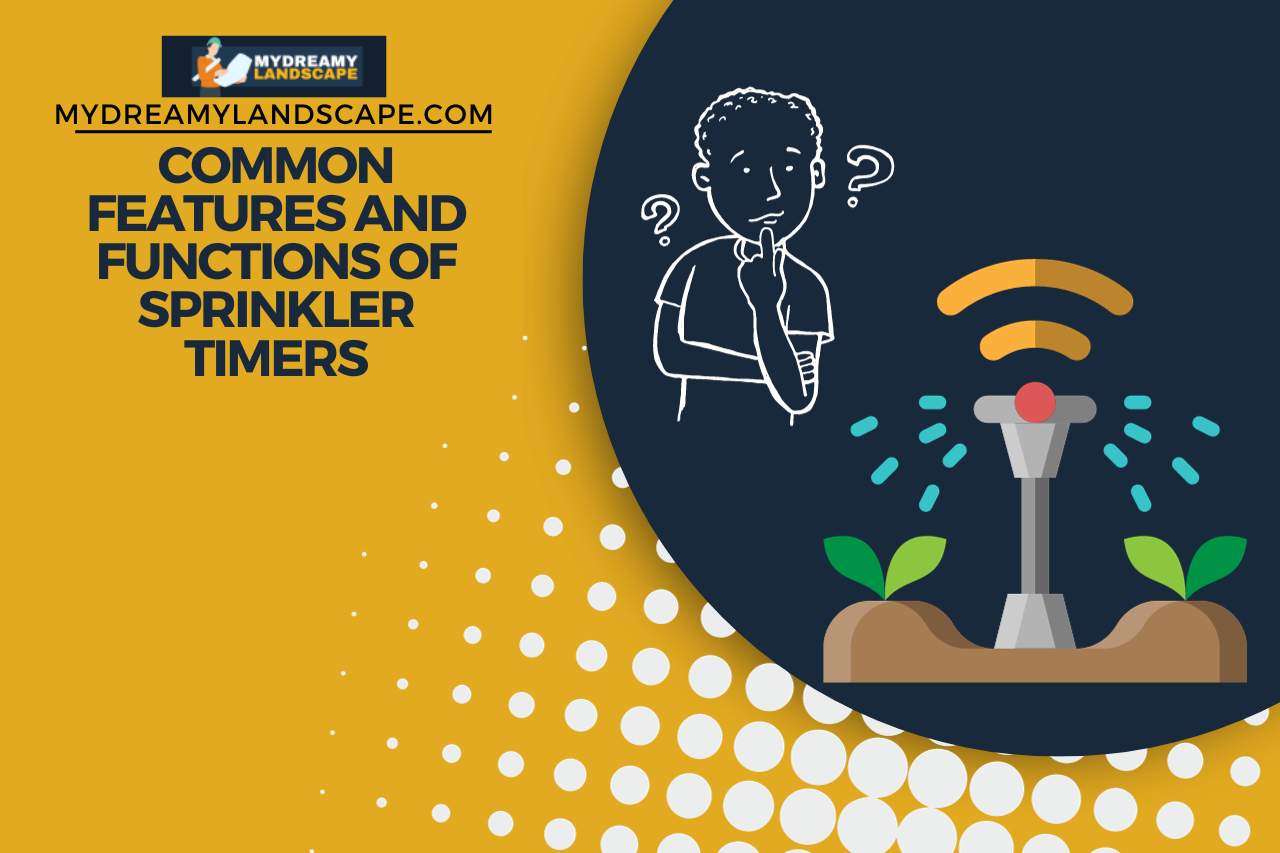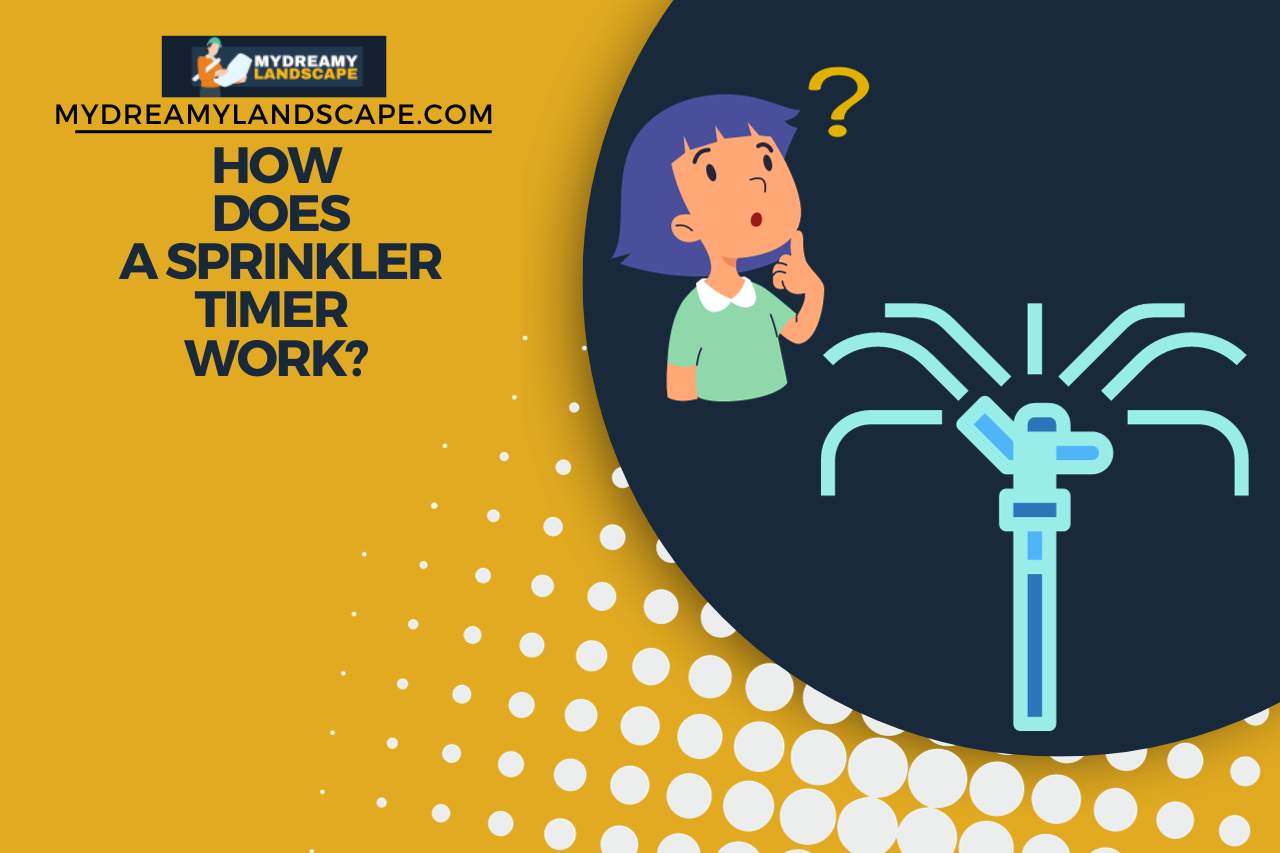How Does a Sprinkler Timer Work? [Different Types of Timers Explained]
Knowing How Does a Sprinkler Timer Work can be pretty helpful if you run into trouble. In today’s article, we will explain the basic functions and mechanics of sprinkler timers, shedding light on how they regulate your garden’s watering routine and many more. Let’s get started!
How Does a Sprinkler Timer Work?
The primary function of a sprinkler timer is to allow you to set up specific times and days for the sprinklers to turn on and off. This scheduling prevents you from over or under-watering.
Mechanical timers use a dial and pins to set up the watering schedule, while digital timers offer you an electronic interface for programming. Smart timers can be programmed using a smartphone app and may offer you more advanced features.
Some sprinkler timers are designed to integrate with rain or soil moisture sensors. These sensors can override the programmed schedule to prevent watering when it’s not needed, like during or after rainfall.
Timers are usually connected to your irrigation system’s valve control box. When it’s time for you to water your garden, the timer sends an electrical signal to open the valves, and when the set time ends, it signals them to close.
Types of Sprinkler Timers and Their Working Principles
Sprinkler timers come in various types, each having a distinct working principle suited to different irrigation needs.
Mechanical Timers
This is the simplest form of sprinkler timer. They use a clockwork mechanism and typically have a dial to set the watering duration. You can manually turn the dial to set up your desired time, and it counts down to shut off the water flow.
Digital Timers
More advanced than the mechanical ones are the digital timers which feature an electronic interface allowing you to have a more precise scheduling. You can program specific days and times for watering, with some models offering you and ability to set different schedules for multiple zones.
Smart Timers
These are the most advanced type of sprinkler timers, offering you Wi-Fi connectivity and app control. They allow scheduling through a smartphone or computer and can adjust the watering based on your real-time weather data. Smart timers can also integrate with other smart home devices.
Multi-Zone Timers
Designed for complex garden layouts, these timers can control several zones independently, allowing you varied watering schedules across the different areas of the garden, based on your specific needs of each zone.
Hose-End Timers
These attach directly to the garden hose and are a simple solution for basic watering needs. They are often digital and can be programmed for specific watering durations and frequencies.

Common Features and Functions of Sprinkler Timers
Sprinkler timers, regardless of their type, come equipped with a variety of features and functions designed to enhance irrigation efficiency. Common features of a sprinkler timer include:
- Multiple Program Options: Most timers offer you several programming options, allowing you to have a set of different watering schedules for various days of the week.
- Multiple Zone Control: Advanced timers can help you control multiple zones independently, enabling you to customize all the watering based on your specific needs of different garden areas.
- Rain Delay: This feature pauses scheduled watering during and after rain, conserving water and preventing you from overwatering.
- Cycle and Soak: To prevent any water runoff in areas with hard soil or slopes, this feature allows you to short watering intervals followed by breaks, letting the water soak in.
- Seasonal Adjustment: This function allows you to adjust the watering duration for seasonal changes, increasing or decreasing the amount of water as needed.
- Battery Backup: Many timers have a battery backup to maintain program settings in case of a power outage.
- Manual Override: This feature lets you bypass the set program for manual watering without altering the programmed schedules.
- Smart Connectivity: Smart timers can connect you to Wi-Fi, enabling remote control via smartphone apps and integration with the weather forecasts for adaptive watering.
You May Also Like
- The Oscillating Sprinkler Stopped Moving – Keep It Oscillating!
- How to Find Buried Sprinkler Heads? Unearthing Your Lawn’s Hidden Assets
- How To Raise The Sprinkler Head? Elevate Your Lawn Care
- Sprinkler Head Not Rotating – (Causes and Solutions)
- Why does My Sprinkler Head Leak? Decoding the Mystery!
- Oscillating vs Rotary Sprinklers – Which Sprinkler is Right for You?
- Why is My Impact Sprinkler Rotating Slowly? Sluggish Sprinkler Solutions!
- How Do you Adjust Impact Sprinkler Rotation? Troubleshooting & Adjustment Tips!
- How Much Water does an Oscillating Sprinkler Use Per Minute? Eco-Friendly Lawn Care
- Can you Connect Two Oscillating Sprinklers Together? Mastering Multi-Sprinkler Setup!
- How Do you Control an Oscillating Sprinkler? (Step-by-Step Guide)



![How Much Electricity Does a Sprinkler Timer Use? [Updated]](https://mydreamylandscape.com/wp-content/uploads/2023/11/How-often-should-you-pressure-wash-your-driveway-2-768x512.jpg)


